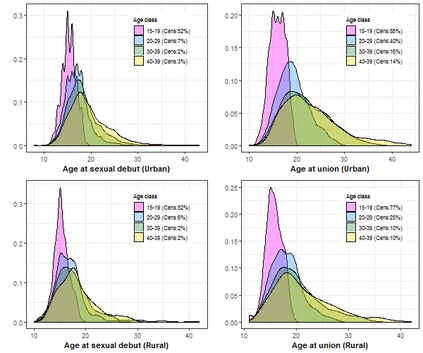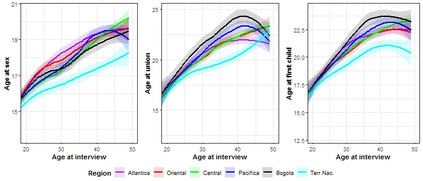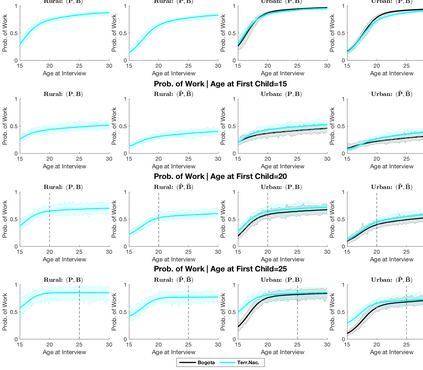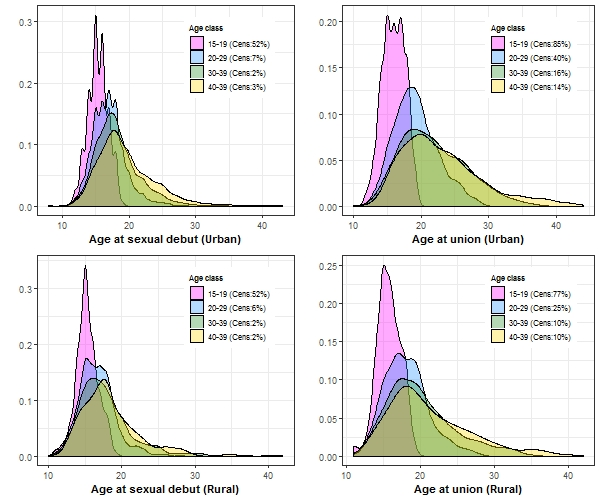Women in Colombia face difficulties related to the patriarchal traits of their societies and well-known conflict afflicting the country since 1948. In this critical context, our aim is to study the relationship between baseline socio-demographic factors and variables associated to fertility, partnership patterns, and work activity. To best exploit the explanatory structure, we propose a Bayesian multivariate density regression model, which can accommodate mixed responses with censored, constrained, and binary traits. The flexible nature of the models allows for nonlinear regression functions and non-standard features in the errors, such as asymmetry or multi-modality. The model has interpretable covariate-dependent weights constructed through normalization, allowing for combinations of categorical and continuous covariates. Computational difficulties for inference are overcome through an adaptive truncation algorithm combining adaptive Metropolis-Hastings and sequential Monte Carlo to create a sequence of automatically truncated posterior mixtures. For our study on Colombian women's life patterns, a variety of quantities are visualised and described, and in particular, our findings highlight the detrimental impact of family violence on women's choices and behaviors.
翻译:自1948年以来,哥伦比亚妇女面临着与其社会父权制特征有关的困难,也面临着众所周知的冲突。在这个关键的背景下,我们的目标是研究基准社会人口因素和与生育率、伙伴关系模式和工作活动相关的变量之间的关系。为了最好地利用解释性结构,我们提议采用巴耶斯多变密度回归模型,该模型可以包含受审查、受限制和二进制特征的混合反应。这些模型的灵活性质允许非线性回归功能和错误的非标准特征,如不对称或多模式。该模型通过正常化构建了可解释的共变依赖权重,允许直截了当和连续的共变组合。通过将适应性Metopolis-Hastings和Contall Carlo相继相结合的适应性逃逸算法,克服了推断困难,以创造自动脱节的后遗混合物序列。关于哥伦比亚妇女生活模式的研究,对各种数量进行了可视化和描述,特别是我们的调查结果强调了家庭暴力对妇女选择和行为的有害影响。
























